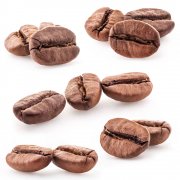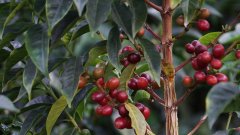Honduras Tropical Plantation San Juan Cido Estate
San Juan Ciudo is a small village in central Honduras, 40 kilometers northeast of Tegucigalpa, the capital of Honduras. The town is under the jurisdiction of Francisco Morz á n, in addition, the jurisdiction of Francisco Morz á n includes Nuevo Rosario, Guacamaya and Plan Grande, with a total population of about 1400.

Although San Juan Theodore is historically famous for its mineral deposits, it is now highlighted by its location in the buffer zone of La Tigra National Park, a rainforest ecosystem and the first national park in Honduras. The park acts as a huge reservoir, providing domestic water for 500000 residents of the capital.

Because Honduras is located in the tropics, the temperature change in San Juan Theodore is small throughout the year. Therefore, the so-called winter is actually the rainy season, while the so-called summer is actually the dry season. In the tropics, altitude has a greater effect on temperature than the duration of precipitation in a year. San Juan Seto is located more than 1239 meters above sea level, making the temperature slightly cooler all the year round. In summer (March-June), the maximum temperature is usually about 26C, while the average minimum temperature is about 18C. The highest average temperature in winter is 20 ℃ and the lowest is about 14 ℃.

The modern economy of San Juan Seto is largely dependent on agriculture, most of which is small-scale coffee production, and its climate and altitude are very conducive to the production of high-quality coffee beans. COMISAJUL, a partnership of hundreds of small coffee growers in central Honduras, is located in San Juan Theto. COMISAJUL is a cooperative organized by hundreds of coffee farmers in the San Juan Heido region, where coffee is grown in mountains 1450-1550 meters above sea level and shaded by bananas, avocados, papayas and other fruit trees. Coffee farmers pick ripe fruits by hand during the harvest season, wash them and then dry them in the sun. The fermented water with coffee peel and pulp produced by water washing is collected and used as fertilizer for coffee trees. This batch of coffee tastes very clean, high sweetness, very soft acidity, with the flavor of milk chocolate.
Important Notice :
前街咖啡 FrontStreet Coffee has moved to new addredd:
FrontStreet Coffee Address: 315,Donghua East Road,GuangZhou
Tel:020 38364473
- Prev

Honduras San Juan Theodore
Honduras San Juancito Lot#1 country: Honduras production area: San Juan Theodor altitude: 1450-1550 m treatment: washing variety: bourbon treatment: COMISAJUL cooperative flavor: clean, baked nuts, milk chocolate
- Next

Power Coffee South American Santos Coffee: also a unique coffee variety in Brazil
South American Santos Coffee: also unique to Brazil, it tastes mellow, neutral and can be boiled directly or mixed with other kinds of coffee beans to form a comprehensive coffee. Old bourbon coffee is grown on some estates in the Serrado district of Minas Greais state in southeastern Brazil. These estates, such as Capin Branco Manor and
Related
- Does Rose Summer choose Blue, Green or Red? Detailed explanation of Rose Summer Coffee plots and Classification in Panamanian Jade Manor
- What is the difference between the origin, producing area, processing plant, cooperative and manor of coffee beans?
- How fine does the espresso powder fit? how to grind the espresso?
- Sca coffee roasting degree color card coffee roasting degree 8 roasting color values what do you mean?
- The practice of lattes: how to make lattes at home
- Introduction to Indonesian Fine Coffee beans-- Java Coffee producing area of Indonesian Arabica Coffee
- How much will the flavor of light and medium roasted rose summer be expressed? What baking level is rose summer suitable for?
- Introduction to the characteristics of washing, sun-drying or wet-planing coffee commonly used in Mantenin, Indonesia
- Price characteristics of Arabica Coffee Bean Starbucks introduction to Manning Coffee Bean Taste producing area Variety Manor
- What is the authentic Yega flavor? What are the flavor characteristics of the really excellent Yejasuffi coffee beans?

